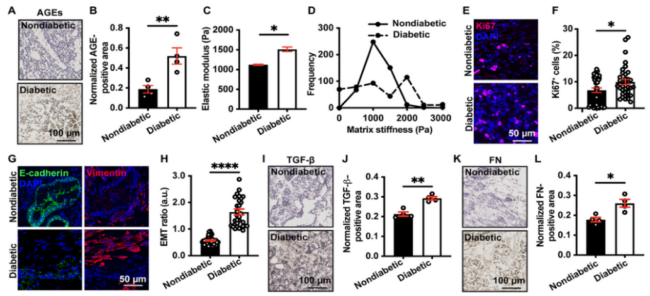“Diabetic hyperglycemia promotes primary tumor progression through glycation-induced tumor extracellular matrix stiffening” published in Science Advances selected as VINSE Spotlight Publication
About the authors: Co-first author, Wenjun Wang is an NIH NCI F99/K00 Predoctoral Fellow in Biomedical Engineering advised by Prof. Cynthia Reinhart-King. Wenjun’s research focuses on the mechanism of tumor progression at the RNA, cell, and tissue levels via alteration of tissue mechanical properties. Co-first author, Dr. Lauren Hapach earned her Ph.D. in Biomedical Engineering in 2021 under the direction of Prof. Cynthia Reinhart-King. In addition to this work, her dissertation investigated the role of intratumor heterogeneity in breast cancer metastasis. In recently published work, Wang, Hapach, and co-authors found that diabetic hyperglycemia promotes breast tumor growth, epithelial-to-mesenchymal transition (EMT) of tumor cells, and tumor extracellular matrix (ECM) stiffening through increased glycation, a non-enzymatic chemical reaction. Inhibition of glycation or the cells’ ability to sense changes in tissue glycation in diabetic mice reduces these same metrics to a comparable level as control non-diabetic mice. Published in the journal Science Advances, this study describes a novel biomechanical mechanism by which hyperglycemia promotes breast tumor progression via glycation-mediated tumor ECM crosslinking and highlights the key role of ECM stiffening in the interaction between breast cancer and diabetes. This work also points to glycation inhibition as a promising potential adjuvant therapy for diabetic cancer patients.

